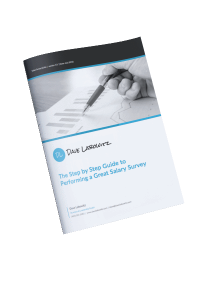“Should it be you running your business?” is the final part of a twelve-part series. It’s a deep look behind the scenes of the “business playbook” that makes VC-backed companies successful and how to apply these lessons to your business.
- If you’re looking for the introduction to the series and first article, please click here.
- If you’re looking for other articles in the series, links are at the bottom of this article. Enjoy!
12. Should it be you running your business?
A harsh truth in the world of equity financing is that professional investors like angels or VCs normally replace the founder with a professional CEO once they take control of the board of directors. This can be a bitter pill to swallow for a VC-backed founder who wants to continue running their business. In this situation, a founder can go a few different directions. They can:
- Embrace the decision and find a new role in the company
- Go do something else and simply be an owner
- Attempt to fight for control of your company
Options one and two are great, option three is not. Equity investors normally take control of the board, so option three is doomed to fail.
So how is this relevant if you’re not a VC-backed startup?
If you’re not taking on equity investors, then there won’t be anyone to force you out of your role running your business. But what if that’s actually what’s best? For the company? For you? You have to understand the wisdom behind why investors so often replace the founder in order to make the right decision for your business and for yourself. There may come a time when it makes sense to voluntarily give up your role and hire a professional CEO. Here are some reasons why.
Being a CEO is its own skillset
First, and most obviously, the skillset you need as a founder may have little or nothing to do with running your business as it starts to scale.
As an example, think about a company that sells an industrial chemical invented by its founder who has a degree in organic chemistry. He spent years perfecting his formula and now it’s finally complete. He’s launched the company and has a few beta customers but not much else. He’s struggling with both sales and cash flow. However, his IP is amazing and he believes fervently that the business could be huge.
This founder knows nothing about sales, cash management, or leading a team. He’s a chemist, who spent his entire career in a laboratory! There are still plenty of opportunities for him in R&D; he can create a full line of complementary products, so it’s not like he’d have to leave the company. But virtually no one would assume he’s the right person to expand the company from a few hundred thousand in revenue into the tens of millions. That job requires a completely different set of skills and the only way for the company to have a shot at getting there will be to hire a leader with those skills. You don’t want to be an underskilled founder who holds on too long.
You may actually be tired of running your business
Believe it or not, I know a lot of founders who are completely bored running their business. They typically don’t even realize how bored they are until they do some soul searching. Here’s what they discover: Once they’ve gotten solidly profitable and are able to live the lifestyle they want, they start to struggle with motivation. The status quo is good enough, right? They have a nice house, a nice car, and their family is secure financially. Why keep pushing? I know this is surprising to hear if you’re still struggling your way to profitability, but it’s actually quite common.
Continuing in this situation isn’t good for realizing the company’s potential, nor is it good for the entrepreneur. Even if you’re the founder, it’s no fun to be in a job that bores you. It’s even worse if you feel trapped in the role because “it’s your company” or “you can’t imagine doing anything else.” And obviously, if you aren’t fired up and working hard, it’s unlikely the company will realize its potential, either.
If you’re a founder and your company isn’t realizing its potential, it’s a good idea to ask yourself if you may be the reason. If you come to the conclusion the company (or you!) might be better off with someone else running your business, then it may be time for a “conscious uncoupling.” There’s absolutely no shame in turning the reins over to a professional leader. Not to mention, your equity will benefit far more if your new CEO grows the company substantially than if you kept control and revenue was flat.
A fresh perspective is valuable
If you’ve been running your business for a long time it’s very likely you’re innovating less than at the beginning. You’ve learned to see your business and your market a certain way and you’ve gotten used to doing things “the way you do them”. This way has created some success for you, so you’re probably not challenging your assumptions aggressively anymore.
A new leader with a fresh perspective will bring more than energy; they’ll bring creativity. Creativity is the engine that leads to growth. A new message, new process, new market, or new approach could be the adjustment that leads to an explosion in revenue.
If you want to see this in practice, it happens all the time with professional sports coaches. A team will fire a highly experienced coach who’s had a ton of career success but whose results have been trailing off recently. A new coach will come in and start winning right away with the same team. The old coach will go to a new team and start winning right away there, too. In these cases, the reason both organizations benefit is because they each got a fresh perspective.
It’s time for a conversation with yourself
I’m not saying it’s time you step away from running your business; only you can decide that. However, it’s a great idea to schedule a periodic conversation with yourself to make sure you don’t stay too long. Consider putting a once-a-year recurring meeting on your calendar to check in with yourself. It’s entirely possible that someday you’ll realize it’s time to bring in a new CEO. And that’s okay.
Other articles in the VC-backed startup series are:
- Part 1: VC-backed startups have external accountability (so get some for yourself or at least act like you have some)
- Part 2: Venture backed startups focus obsessively on their numbers. You should, too.
- Part 3: Put at least 75% of your focus on sales
- Part 4: Make culture a priority
- Part 5: Fund your business adequately
- Part 6: Invest in your team (and yourself)
- Part 7: Build scalability into your business
- Part 8: Build career paths for your team
- Part 9: Create copious documentation
- Part 10: Engage in your local startup ecosystem
- Part 11: Encourage leadership at all levels






